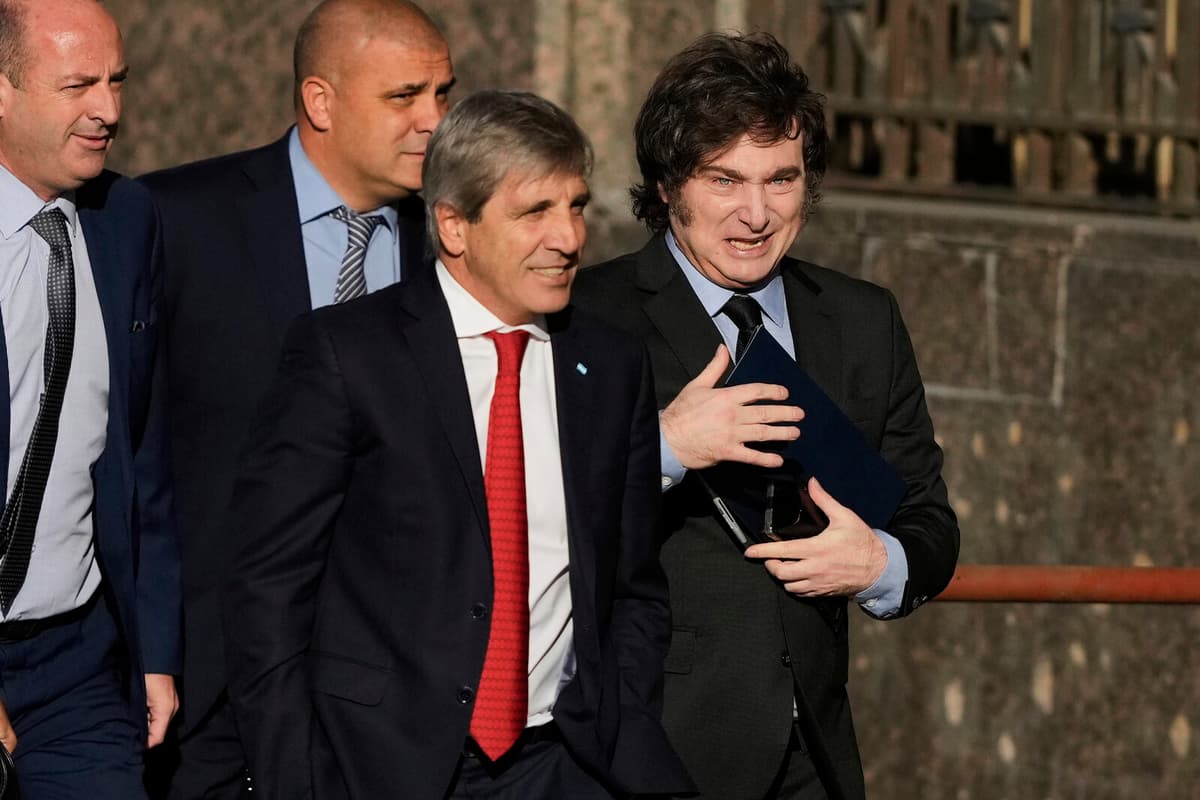Javier Milei became world-renowned even before the 2023 election when he waved a chainsaw, a symbol of the major pruning of the state apparatus. As president, he has traveled the world to sell his ideology – praised by, among others, billionaire Elon Musk.
In his home country, Milei's time in power has meant enormous cutbacks, with increased unemployment and poverty as a result. Women's groups are warning that men's violence and murder of women have skyrocketed since state support disappeared. Protests have been marked by police violence.
However, Milei has also created a budget surplus and significantly reduced inflation. And now, the International Monetary Fund (IMF) – for the 23rd time – has granted a loan to Argentina, this time for 20 billion American dollars.
The purpose of the government is to create dollar reserves in the central bank, which will finance imports, curb concerns about a devaluation of the Argentine peso, and increase the long-non-existent trust in the national currency.
Promising a Golden Age
In connection with the loan, the restrictions on individuals buying dollars, which since 2019 have been limited to a maximum of 200 per month, were lifted, and the binding of the exchange rate to the US currency was eased. This is intended to prevent the trade in dollars on the black market, which is very large since it is the currency the general public dares to save in. Be calm – there are dollars, is the message.
Argentina will be the country with the strongest growth over the next 30 years, said Milei about the changes.
The recent moves are probably reasonable given the circumstances, assesses Damián Migueles, a doctor in national economics.
A risk is that Argentines will rush to the bank to buy dollars, and that the exchange rate will then skyrocket. It hasn't happened yet. One reason is that inflation has decreased – another that the austerity policy has made it so that large parts of the population do not have any pesos to buy dollars with, notes Migueles.
Missing the Fundamental Problems
What Milei doesn't seem to have in mind is that the difficulties he is trying to tackle – high inflation, trade deficits, and indebtedness – are symptoms of underlying problems, according to Damián Migueles.
The problem for a long time has been that Argentina does not have a competitive industrial sector. We have a very large and diversified industrial sector that cannot export.
Just because you cure the symptoms, you haven't cured the underlying disease. The expectation that investments will flow in just because you get the macroeconomy in order is quite wishful thinking.
It was primarily all the promises about the economy that got libertarian Javier Milei elected as Argentina's president in November 2023. Most important for Argentines was probably inflation, which Milei promised to push back during his reign.
From an annual inflation rate of almost 288 percent in March 2024, the president can boast a figure of 55.9 percent a year later – the lowest in three years.
He has also managed to create a budget surplus. But at what cost?
Most of what costs the state money is unnecessary and must be eliminated, is the president's philosophy. This means, among other things, that the minimum pension is equivalent to 3,200 Swedish kronor – at the same time as a pensioner in Argentina needs around 9,800 kronor per month for basic needs such as rent, food, and medicine, according to the country's statistics agency.
A third of pensioners live below the poverty line, shows a study by researchers at the University of Buenos Aires. According to official figures, the number doubled during Milei's first six months in power.
Sources: BBC and others
The nearly 70-year-long relationship between Argentina and the IMF is far from a love story. The total of 23 loans the country has received has been marked by great discontent.
A recent survey shows that 55 percent of Argentines have a bad or very bad image of the fund. The demands for austerity imposed by the IMF have always hit the lower social classes hardest, according to economists. With Milei as president, it's not a problem – he has gone further than what the fund usually demands.
Argentina has made itself known as a country that doesn't pay its debts. Even before the latest loan, Argentina owed the fund over 40 billion dollars, which the country received in 2018 under the then-president Mauricio Macri's rule. The new loan Milei got is partly to finance other debts the state has.
Sources: AFP and others






